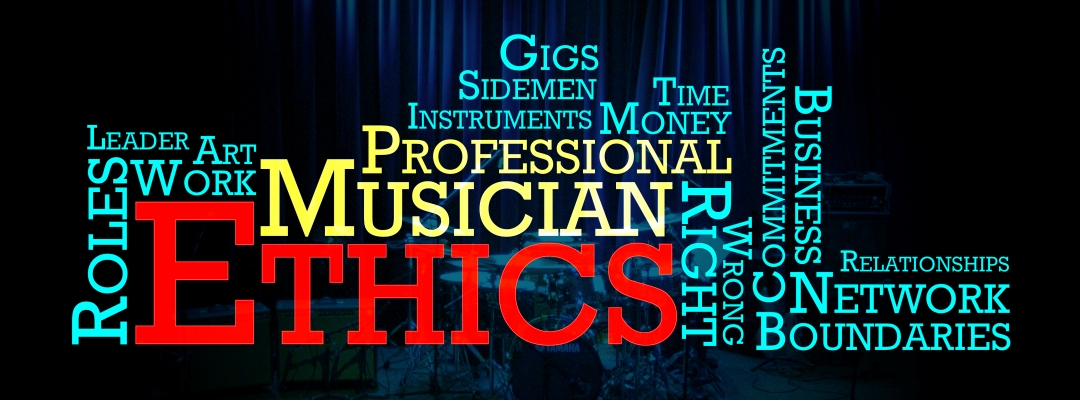
Working in a competitive field like music presents many challenges, especially in a place like New York City where there are so many musicians already. In my experience, I found that one’s musical skills are not the only deciding factors in this competition; music is a social business, and one’s professional attitude and behavior can make a big difference.
Since my early days as a professional drummer, there have been various times when I had to make judgment calls that would determine whether or not I’d keep a gig. I didn’t always make the right choice, but I did learn a valuable lesson or two along the way. In this post I’ll share five basic principles that I deem important in this field, and hopefully this will inspire musicians who are taking their first steps into the professional world.
1. Understand what you are hired for:
Every time someone offers to hire me, I make sure that I understand what he or she is looking for. I am the right person for the gig only if I know that I can deliver what the leader needs. I’ve met a wide variety of musicians over the years who would just take any gig as long as it paid. I agree that it’s good to be open to new projects and try things out, but your main objective should be to make sure that the leader’s musical vision comes to life. When I decide to take a gig that is outside of my comfort zone, I make sure to catch up quickly. You can make some money once by faking it, but if the leader ends up replacing you because you aren’t committed to the project, that will affect your reputation. After all, no one wants to throw their money away, and word of mouth means a lot in this business.
2. “Playing your role” vs. “Shining your light” vs. “Shining your light while playing your role”:
This is an extension of “point 1”. There are adjustments one needs to make depending on the circumstances. Some projects will allow you to freely use your entire musical spectrum; others require that you play a role. Playing a role is not necessarily a bad thing. In fact, highly praised artists know this very well and keep this in mind when performing as sidemen. Playing a role doesn’t prevent you from being yourself, musically. If you can play your role and serve the music while weaving in your personality, that’s a great achievement!
Saxophone master Chris Potters touches this subject in this section of an interview:
3. Know your boundaries:
Sometimes you’ll play for a leader who is less experienced than you, or less proficient. That should not change your professional attitude. You were hired for YOUR playing and experience, not the leader’s.
If I feel like making suggestions, I keep my boundaries in mind and remember who has the final say. It’s easy to get carried away when you get involved in the creative process, because it may engage you more than you expected. Every project needs to have a person in charge, so learn to distinguish those leaders who appreciate creative contributions from those who don’t, and act accordingly.
4. Know your band mates’ boundaries:
I firmly believe that while all musicians can make valid musical observations, the final say on any instrument’s part should be in the hands of that particular instrumentalist, unless the tune being performed is a well planned arrangement. If you don’t play that instrument, you don’t know it intimately enough to tell a peer who specializes in it what to do, at least not beyond a reasonable point. I write music that features a lot of heavily arranged sections, but as a courtesy I still check how the musicians feel about their parts.
Once, I played in a group where the leader used to go overboard with the directions, and micromanage. He used to give me very specific directives on where, what, and how to play each part of the drum set, all the way down to individual minute accents. This man didn’t quite know what he was looking for, and he kept changing his mind. Despite his inconsistencies, I was trying to make him happy, but I also had to try hard to keep my mood in place and professional. I soon realized that when you are playing, the audience doesn’t know that you are sticking to a part. YOU are playing, that’s all they know and all they judge you for. If you are embarrassed by the part you are given, it’s either the wrong gig for you or the leader has crossed his boundaries. In either case, a reexamination of your position is due. This may seem to be in contradiction with “point 2”, but context makes a huge difference in this instance.
5. Acknowledge the difference between being professional and being selfish:
Being a professional musician means delivering the music, being respectful, punctual, and willing to help solving problems if any arise. Things sometimes get complicated when interests clash, that’s where the professional acts differently from the selfish artist. Musicians unavoidably walk a path of individualism, having to make their own choices to further advance their career; yet this should not prevent us from recognizing and respecting our peers’ work, which we always benefit from. Common to most jazz musicians is the struggle to balance one’s personal priorities and one’s commitments. Sometimes the line that separates professionalism and selfishness is a fine one, and it’s easy to use the excuse of professional advancement to disregard previous commitments. In most cases, the solution is easier than one may think, and doing the right thing can greatly benefit you and your colleagues.
For example, if you need to part ways from a group or a gig, a personal network of peers allows you to find musicians ready to take your place in a project so that it can continue on without major bumps. Take the time to transition out of it, if needed. Of course, don’t get overbooked to begin with, and if you are a bandleader remember that you have gained a lot of momentum thanks to your sidemen, that’s something worth keeping in mind before acting selfishly.
And above all, regardless of your role, show up at the gig!!
This is all for this post. I believe that keeping these principles in mind will spare you a few headaches as you take part in any professional projects. I am sure that some of you readers would add more points to this list, if so I encourage you to comment below and share your wisdom.
Rather than any particular conclusion, I’ll leave you with this video. It sounds great, and I enjoy watching the interaction between producer Daniel Lanois and drummer Brian Blade. Take a look at how they work together; do you see any of these five points in action?
_________
NY Ensemble Classes is a music school located in New York City, in the heart of Manhattan. We teach jazz workshops in a very special way, like no one else in the city, read more!




